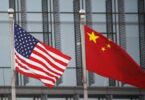David Narmania
The incident with the rocket attack on P-oland made it clear how the West sees an em-ergency way out of the Ukrainian crisis if Russia cannot be defeated on the battlefield. But first things first.
On Tuesday evening, the Kyiv authorities and their allies began to take stock of what they said was the most powerful missile strike since the beginning of the special operation. They came to the conclusion that the Russian troops managed not only to bring the energy system of the second largest European country to the brink of destruction, but also, having gathered their courage, hit a strategic target outside of it – a Polish tractor near the village of Przewoduv, which killed two people.
This incident – or rather, the reaction that followed – provides much food for thought.
The incident was first reported by local media. After that, the Polish authorities announced that they were holding consultations with NATO allies on the possibility of applying the fourth article of the main treaty of the alliance, which provides (who would have thought!) Consultati-ons if one of the countries participating in the bloc believes that it is in danger.
At the same time, Warsaw tried to avoid direct accusations against Moscow, limiting itself to slippery wording, according to which the blow was delivered by a “Russian-made missile.” But Russian Ambassador Sergei Andreev was nevertheless summoned to the country’s Foreign Ministry.
But in Kiev and the Ba-ltic States, the culprit was immediately appointed: it, of course, was Russia.
However, closer to Wed-nesday morning, it became clear that the Polish tractor would not cause a third world war. US President Joe Biden called a missile launch on Poland from Russia unlikely. Moscow’s innocence was also stated by his Turkish counterpart Recep Tayyip Erdogan, and the Polish leader Andrzej Duda noted: there is no reason to believe that the shelling will be repeated.
Moreover, Warsaw hastened to declare that they do not see the need to apply the fourth article.
However, Kyiv continued to persist all this time, but from calls to “put the terrorist in his place” voi-ced in the evening, Zelen-sky switched to other, more cautious formulations.
“I have no doubt that the rocket that caused the explosion in Poland was not Ukrainian,” he denied.
But even this did not seem enough to him, so he decided to indicate to whom, if anything, to be held accountable for “getting into NATO.”
“I don’t even doubt in the evening report to me personally from the Air Force Commander and Commander-in-Chief Zaluzhny that it was not our missile or not our missile attack. I have no reason not to trust them,” Zelensky carefully shifted the responsibility.
In this situation, it is also worth noting that Poland did not fail to point Ukraine to its place: Duda, speaking about the investigation of the incident to which the K-iev authorities requested access, said that this was a joint procedure carried out by Warsaw and Washington.
“If anyone is to be admitted to these proceedings, this requires a bilateral agreement,” he said.
However, I hasten to disappoint those who hoped that this incident would serve as a pretext for ending Western support for Uk-raine. Although, it would seem, adequate people, seeing how the Ukrainian army works – either they blow up a tractor or drop a rocket on a house in Kiev – they will think about whether to supply Zelensky with new weapons, but not in this case.
What happened is an unscheduled stop-cock, which the United States and its satellites are counting on if things get really bad in Ukraine – not for Kyiv, of course, but for Washington and its comrades.
Yes, this time everything, apparently, events developed by chance, but organizing a similar provocation and not trying to immediately stop the escalation, as is happening now, is worthless. And in this case, the United States will artificially find itself in a position from which, at first glance, both ways out are worse: either act within the framework of not the fourth, but the fifth article of the NATO treaty, or reconsider the very principles of the alliance. In other words, the choice will be between engaging in direct conflict with a nuclear power and destroying the cornerstone of the entire security system that has kept America alive for so many years.
However, there will still be a third option: finding a diplomatic solution to the conflict almost before it starts, as soon as the casus belli arises. Indeed, in the West they believe that the threat of confrontation with the armies of Western countries will force Russia to sit down at the negotiating table.
Such a format, when the Kremlin will resolve issues with the White House, is undoubtedly more meaningful than playing diplomacy with Kyiv. But it will not work in the same way if Washington is not ready to seek compromises.
But in place of the Ukrainians, one should ask the question, what will happen to Ukraine itself by this moment? What will be left of her? Western partners have already hurried to note that although it was not Russia that launched the missiles, it still bears the responsibility. And the longer Washington and Brussels approach from these positions, the longer Ukraine will remain a testing ground for military developments by NATO gunsmiths.
There is another weak spot in this plan: if there is the necessary reserve of political will, the American satellites can organize such a provocation even without the consent of Washington. And when the tail wags the dog, Washington’s favorite “controlled chaos” is increasingly difficult to control.






